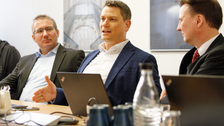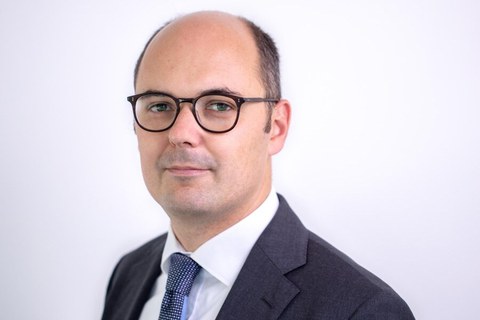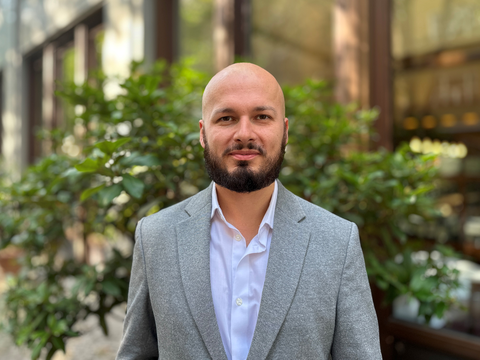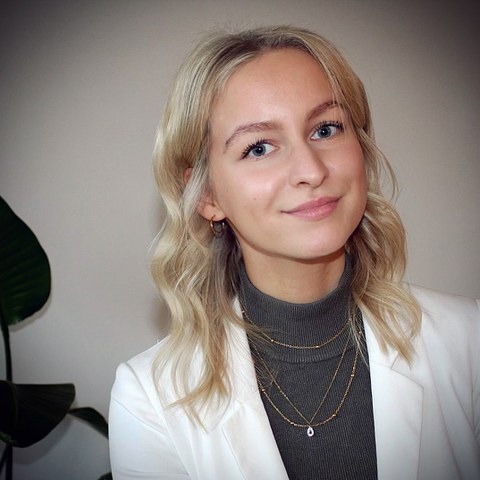Business Administration
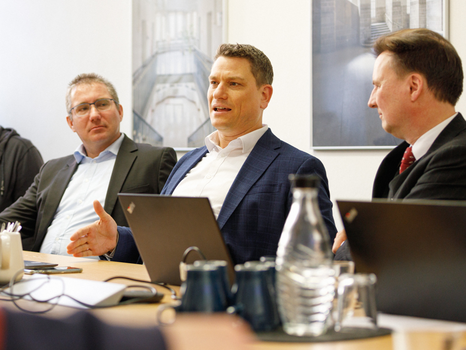
© Klaus Gigga

© Klaus Gigga

© Klaus Gigga
Table of contents
Full Chairs
Chair of Business Administration, esp. Management Accounti and Control
Prof. Dr. Thomas Günther
Information on Teaching
The intention of our teaching program is to acquaint bachelor, master and diploma students with the philosophy, instruments and methods of management control. The objective of management control is to create and to evaluate accounting-based and other information to support management decisions and to coordinate other management sub-systems such as human resources, organization structure, procurement or marketing. In the last 20 years, the focal topics of management control expanded progressively, so that it incorporates an extensive number of fields like cost accounting, strategic management and control, cost management, company valuation etc. The occupational profile of a controller requests expertise as well as social and personal skills (e.g., the ability to moderate meetings and workshops, to communicate, presenting skills etc.).
Research Focus
- Measuring, valuing and controlling intangible resources
- Use and design of management control systems for organizations
Chair of Business Administration, esp. Energy Economics
Prof. Dr. Dominik Möst
Information on Teaching
Our curriculum focuses on an interdisciplinary approach including operational, economic and technical aspects, and has the ambition to be both – scientific and practice-oriented. For this purpose, our lectures embrace the whole field of Energy Economics (including "Basics of energy markets and economics", "Power system economics", "Renewable energy sources", "Risk quantification and management", "Ressource economics and environmental policies", "case studies and research projects in energy and environment", etc.) covering basic knowledge as well as advanced quantitative methods for decision support. Moreover, our Chair provides a vast number of interesting thesis topics reaching from theoretical topics to precise practice-oriented topics. We offer an excellent and well-balanced supervision of theses.
Research Focus
- Analysis of the whole energy value chain – from energy supply through power transmission and distribution to energy demand
- Development of new methodological approaches with the aim of to map the structure and the changing energy and environmental policy framework of energy systems
- Model-based analysis of the European electricity, gas and emissions trading markets
Chair of Entrepreneurship and Innovation
Prof. Dr. Michael Schefczyk
Information on Teaching
As part of the bachelor, master and diploma programs, our Chair offers several courses in the fields of "Entrepreneurship/Management of Young Enterprises" and "Management of Technologies, Innovations and Products". In a variety of lectures, tutorials and workshops the focus is set on the ability (a) to write a business plan in the context of starting up, or developing an enterprise, (b) the financing of innovations and young enterprises (through venture capital or public funding), as well as (c) property rights issues. An interactive design of our courses and the provision of practical experiences are central concerns.
Research Focus
- Management of Innovation and Technology (e. g. technology acceptance, resistance to innovations, stakeholder)
- Entrepreneurship and Young Firms (e. g., venture capital and earlystage
financing, psychology in entrepreneurship, etc.)
Chair of Business Administration, esp. Finance and Financial Technology
Prof. Dr. Lars Hornuf
Information on Teaching
Financial management deals with controlling the financial resources of a company. But it is also about evaluating companies, projects and investments using various methods. Another important aspect of finance is risk management. Finance scholars identify possible risks such as currency or interest rate risks and develop measures to minimize or avoid these risks. Financial technology (FinTech) and financial innovations are playing an increasingly important role in the financial industry. FinTech is about the development and application of innovative technologies and solutions to improve the efficiency, transparency and security of financial transactions. Important topics in this context are blockchain technology, cryptocurrencies, mobile payment systems, crowdfunding and automated investment advice. Financial market research also deals with the capital market, stock exchange trading and banking. In the bachelor's program we offer lectures on investments and corporate finance as well as behavioral finance. In the master's program, we offer lectures on financial derivatives and options as well as financial technology.
Research Focus
- Financial technology (FinTech), with a focus on crowdfunding, blockchain, robo-advice
- Data economy and data protection
- Sustainable finance
- Online platforms and crowdsourcing
Chair of Business Administration, esp. Industrial Management
Prof. Dr. Udo Buscher
Information on Teaching
Due to the production of goods and services being greatly crosslinked, it is increasingly important in the framework of industrial management not to limit considerations to the boundaries of a company, but to extend them to the whole supply chain in which a company is integrated. The analysis of the flow of materials, goods and information beyond a single company, however, requires a substantiated knowledge of intra-company processes of production and transfer. The shared object of insight "production" is responsible for the fact that our Chair is an important interface of business and engineering. Hence, the subjects offered are particularly aimed at students of "Industrial Engineering and Management" who can complete their technically and technologically aligned subjects ideally with the subject of Industrial Management.
Research Focus
- Analysis of intra-company as well as inter-company flows of materials, goods, information and finances and the use of game theory in order to further comprehend the interactions of the parties involved and the underlying power structures
- Scheduling with the help of meta-heuristics
- Shift scheduling in railway companies
- Integration of remanufacture, recycling and disassembling processes into classical pro-duction planning and production control
Chair of Innovation and Technology Management
Prof. Dr. Andreas Pinkwart
Chair of Business Administration, esp. Logistics
Prof. Dr. Rainer Lasch
Information on Teaching
The term logistics refers to the integrated and sustainable planning, controlling, and managing of all upstream and downstream flows of materials, goods, and information from suppliers (or customers) to the company, within the company and from the company to its customers (or suppliers). The course aims to enable students to recognize, analyze and solve typical logistical problems and to translate them into real-life applications. We are very interested in a process-oriented, integrated, and sustainable approach to ensure that all the company's activities meet its customers' requirements.
The following lectures are available for further specialization: "procurement", "operations", "distribution", "after sales logistics", and "supply chain management". While procurement looks at supplier management, quality control, material planning, and storage in more detail, production focus on production planning and control. Distribution covers all transportation-related processes and supply chain management aims to develop knowledge in the fields of benchmarking, postponement, ECR/CPFR, and supply chain risk management. Furthermore, after sales management covers maintenance strategies and planning, spare parts logistics, and waste removal processes.
Research Focus
- Supplier risk and innovation management
- Automation in procurement and supply chain management
- Production planning and operations management in dynamic production networks
- Maintenance management and spare parts logistics
- Sustainable design of reverse supply chains
- Supply chain governance
- Impact of additive manufacturing on the supply chain
Chair of Business Administration, esp. Management Accounting and Control
Prof. Dr. Peter Schäfer
Information on Teaching
Our course offers students an overview of internal accounting. Students learn how to use information from internal accounting systems such as cost accounting to make the best possible decisions. We also discuss how accounting systems should be designed to support management in the best possible way. A special focus is placed on the efficient design of incentive and performance measurement systems.
Our teaching program starts with the basic lecture in cost and performance accounting. We offer case study seminars in both the Bachelor's and Master's programs in order to make our teaching as practice-oriented as possible. We invite Master's students to attend our lecture in value-based management, which provides a detailed insight into the design of incentive systems. Bachelor's and Master's seminars combine our teaching with current research questions, for example on controlling in start-ups or current issues relating to board remuneration. Further courses on management accounting are offered by Prof. Günther's Chair of Business Administration, in particular Management Accounting and Control.
Research Focus
- Incentive systems and board remuneration
- Effectiveness and efficient design of internal management systems
- Internal management and incentive systems supporting environmental and social objectives
Junior Professorship for Business Administration, esp. Management Science
Jun.-Prof. Dr. Tristan Becker
Information on Teaching
In our courses, we teach the development and application of mathematical optimization methods to problems in various application areas. Our teaching is at the interface to computer science and mathematics. We apply our methods to problems in the areas of production and logistics, supply chain and health care, among others. We put a great emphasis on introducing students to the computer-aided implementation and application of the methods we teach, so that they are able to independently apply the methods they have learned to practical problems in case studies.
Research Focus
- Personnel Scheduling
- Location Analysis
- Planning of Production Networks
- Multi-Objective Optimization
- Optimization under Uncertainty
- Exact and Heuristic Solution Algorithms
Chair of Business Administration, esp. Marketing
Prof. Dr. Florian Siems
Information on Teaching
The focus of our teaching is the question of how a company can initiate and strengthen the relationship with its customers. This includes both the "traditional" marketing instruments (product policy, price policy, communication policy, distribution policy) and marketing strategies (e.g., market cultivation, segmentation, positioning) as well as the more recently developed approaches of "Relationship Marketing" (including customer satisfaction management, customer loyalty management, and customer integration management). Moreover, essential informational principles are conveyed in form of behavioral theories (consumer behavior) as well as methods of data collection and data analysis (market research / marketing statistics). In all teaching content, we place particular emphasis on linking theories with practical applications.
Research Focus
We work interdisciplinary and use a mix of methods from conceptional and empirical (quantitative and qualitative) approaches.
- Relationship Marketing as main research focus
- Subtopics: customer satisfaction, customer demand life cycle management, customer integration management, internal marketing, customer communication, price communication
Chair of Business Administration, esp. Sustainability Management and Environmental Accounting
Prof. Dr. Remmer Sassen (Deputy Head of Chair during the leave of absence of
Prof. Dr. Edeltraud Günther)
Information on Teaching
Within our courses we invite students to discuss the following questions together with us:
- Which framework conditions are relevant for companies and how do they interact when combined?
- How do these framework conditions influence ecological decision-making?
- How is it possible to integrate environmental protection in all stages of the value circle?
- Which problems can occur in this context and how can they possibly be solved?
- Which instruments for the integration of an ecological orientation are available?
- Where do the strengths and weaknesses of these instruments lie?
Students analyse all these questions in a team by looking at practical examples. These can be private companies, non-profit-organizations (e.g. the Red Cross or educational institutions), or units of public administration (e.g. the city administration of Dresden). With these different examples from practice, students also gain a sense of the wide range of possible uses of Business Administration.
Research Focus
- Instruments for economic-ecological optimisation in the decision-making process
- Association between environmental management and sustainable development
- Sustainability Accounting and Reporting
- Financial technology (FinTech), with a focus on crowdfunding, blockchain, robo-advice
- Data economy and data protection
- Sustainable finance
- Online platforms and crowdsourcing
Chair for Sustainability Management and Assessment
Prof. Dr. Samanthi Dijkstra-Silva
Information on Teaching
Sustainability is an increasingly important issue in everyday life, in social discourse and in science. How can companies contribute to a sustainable transformation? How do companies implement sustainability internally? How do their employees engage in this process? How can companies meet the changing demands of different stakeholder groups?
Concepts such as the planetary boundaries or the Sustainable Development Goals of the United Nations provide helpful guidelines for our work. Through our research and teaching, we aim to contribute to the above questions and ground them in current discourses. We want to support students in their learning, spark interest in our topics and promote an active exchange. In addition to the supervision of final theses, we offer the seminar Sustainable Entrepreneurship in the Bachelor's program. In the master program, students can take the seminar Corporate Sustainability and the Nexus Seminar: Multidisciplinary perspectives of sustainability (in cooperation with the FLORES Institute of the United Nations University).
Research Focus
- Contributions to sustainability transformations
- Sustainability assessment and reporting
- Decision-making for sustainability and sustainable behaviors
- Sustainable enterprises and business models
- Institutional change and sustainable organizational innovations
- Entrepreneurial implications of the hydrogen economy
- Sustainable supply and value chains
- Digitalization and sustainability
Chair of Business Administration, esp. Organization and Management
Prof. Dr. Stefan Razinskas
Information on Teaching
The chair’s teaching includes the design of organizational structures and processes as well as the behavior and leadership of organizational members. The courses offered by the chair focus not only on basics on organization and management theory, but also on the consequences of social and technological changes for organizations in general and the ways in which work is organized and employees are led in particular. The management topics covered by the chair in its teaching require students’ willingness for interdisciplinary work at the intersection of business and economics, applied psychology, and sociology.
Research Areas
- Team diversity and stress
- Co-created leadership
- Digital collaboration and leadership
- Resilience of STEM students
Junior Professorship for Business Administration, esp. Human Resource Management
Jun.-Prof. Dr. Sebastian Störmer
Information on Teaching
The course portfolio of the Junior Professorship is strongly informed by pertinent and contemporary challenges affecting the management of employees. A theory-driven and methodologically sound training of students is the foundation of our Chair’s teaching activities. Our teaching paradigm places the individual center stage and adopts a behavioral science approach. Courses offered by our Chair inter alia are "Empirische Methoden im Personalmanagement" (BA), "Current Topics in HRM" (MA), and "Organizational Behavior" (MA). Successful completion of the aforementioned courses enables students to critically analyze HR-related tasks and problems and to arrive at viable solutions in organizational practice.
Research Focus
- Management of assigned expatriates and self-initiated expatriates
- Investigation of the relationship between expatriates’ personality and cross-cultural adjustment and integration processes
- Diversity management: Employee attitudes towards diversity and organizational diversity climate
Junior Professorship for Business Administration, esp. Strategy and Business Ethics
Jun.-Prof. Dr. Ignas Bruder
Information on teaching
Our teaching focuses on current ethical and strategic issues in business administration. A theoretical foundation should enable students to develop practical strategic competence and the ability to reflect ethically. The teaching approach is social science-oriented and interdisciplinary.
Core research areas
- Social Entrepreneurship
- Entrepreneurial sustainability
- Strategy as Practice & Theories of Practice
- Integrative business ethics
- Democratic Organization
Chair of Business Education and Management Training
Prof. Dr. Bärbel Fürstenau
Information on Teaching
Our Chair offers courses for all study programs of the faculty, in particular for undergraduate and graduate students of business and economics education. Courses comprise—beside others—the following content areas: psychological and pedagogical foundations of learning and teaching both in companies and schools, instructional theories and instructional design approaches, empirical research methods in social sciences. Furthermore, courses focus on topics in the field of human resources management, e.g. personnel selection, leadership, or work 4.0 in the digital age. After studying the basics, students can specialize in a variety of fields. The study program aims at supporting students in the development of competence such as knowledge and skills in the respective field as well as personal and social competence. The acquired competences should enable students to successfully cope with situations in their professional life.
Research Focus
- Development and evaluation of complex learning environments
- Learning potential of multimedia
- Learning strategies
- Diagnosing complex knowledge by using knowledge networks
Junior Professorship for Business Education and Management Training, esp. Digitalization in Educational and Working Environments
Jun.-Prof. Dr. Jacqueline Schmidt
Information on Teaching
The Junior Professorship's courses are primarily part of the Bachelor's and Master's degree courses in Business Education and include questions of vocational education in the context of digitization-related transformation processes. In line with the traditional polyvalence of the department, the specifics of school and company-based education and training are addressed.
Research Focus
- Artificial intelligence in the vocational education sector
- Modeling and recording AI-related skills
- Development, implementation and evaluation of digital teaching and learning environments
Chair of Business Administration, esp. Auditing and Taxation
Prof. Dr. Michael Dobler
Information on Teaching
Accounting, auditing and taxation are traditional core disciplines of business administration. They are not only shaped by regulation but also by motives and incentives to disclose information (e.g., in financial statements and corporate reports), to determine payments (e.g., dividends and taxes), and to influence economic decisions (e.g., in capital markets and politics). Beyond basic knowledge in bookkeeping and accounting techniques, our teaching program promotes a sound understanding of how regulations and incentives interact. We regard this understanding as key to assess fundamental issues such as earnings management, financial statement analysis, audit strategy, tax planning, and corporate reporting.
Against this background, our primary objective in teaching is to build sound problem-solving skills in both the German and international contexts. Therefore, our courses cover regulatory and economic approaches as well as theoretical foundations and practical applications. Renowned lecturers and practitioners contribute their experiences.
Research Focus
Our research employs analytical, conceptual, and empirical methods. It covers a variety of topics, such as:
- Financial accounting under German GAAP and IFRSs
- Auditing and corporate governance
- Auditor independence and auditor concentration
- Ddeterminants and consequences of disclosure
- Corporate risk reporting and environmental reporting
- Llobbying and standard-setting processe
- Adequacy and consistency and adequacy of regulation in accounting, auditing, and taxation
Co-opted professors
Chair of Business Administration, esp. Responsible Management
Prof. Dr. Markus Scholz
Chair of Business Administration, esp. Environmental Management (IHI Zittau)
Prof. Dr. Remmer Sassen
Chair of International Management (IHI Zittau)
Prof. Dr. Stefan Eckert
Chair of Production Economy and Information Technology (IHI Zittau)
Prof. Dr. Thorsten Claus
Chair of Transport Services and Logistics (TU Dresden, Faculty of Transport Sciences)
Prof. Dr. Jörn Schönberger
Honorary professors
Honorary Professor of Business Administration, esp. Risk Management
Prof. Dr. Werner Gleißner
Honorary Professor of Business Administration, esp. International Accounting
Prof. Dr. Volker Penter
Honorary Professor of Business Education and Management Training, esp. Commercial Education
Prof. Günther Portune
Honorary Professor of Business Taxation, esp. nternational Tax Law
Prof. Dr. Thomas Reith
Former professors
Prof. Dr. Birgit Benkhoff
Prof. Dr. Horst Walter Endriss
Prof. Gerhard Golze
Prof. Dr. Stefan Huschens
Prof. Dr. Hermann Locarek-Junge
Prof. Dr. Horst Mayer
Prof. Dr. Stefan Müller
Prof. Dr. Helmut Sabisch
Prof. Dr.Frank Schirmer
Prof. Dr. Armin Töpfer (†)
Prof. Dr. Ralf Witt

